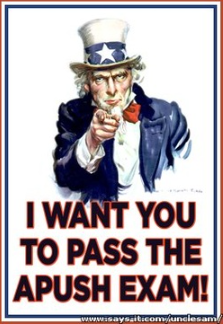🪶 Kalina's Period 1 APUSH Flashcards!
APUSH: AP (Advanced Placement) US (United States) H (History)
July 25th, 2024.
Introduction:
Hi! Kalina here, and welcome to my APUSH study guide thingy! This whole folder will be filled with tools that were in my physical- and online notes, books I read on the side for APUSH, and also side notes that I wished I knew sooner. BUUUT, since your already here, hi! Good thing you found this (hopefully earlier than I did during APUSH.) I wish you good luck and wonderful 5’s and 6’s!
SIDE NOTE: If you have any questions, see any mistakes, or would like me to online tutor you free of charge (as it helps me get more volunteer hours and let me teach kids a subject I love), feel free to DM through Discord! (kq1ina)
Why am I- or should I take this class and exam?
AP courses are basically college courses in a high school and towards the end of the class (usually in May), an exam which you sign up prior to, but don’t have to take, gets held. Whether or not you choose to take the exam, as long as you pass the class, you’ll get that sweet AP weight every student loves.
HOWEVER, if you do take the exam and make a 3-6 (passing being a 3, and getting 100% being a 6), you will most likely get a college credit!
While I did say 3-6, most colleges sadly want to see more of 4-6’s. So please keep that in mind!
While the class is called easy for some, but very rigorous for others, no matter who you are, you will have to be able to manage your time, study beyond school hours, ask lots of questions, and make sure you grasp each concept with your full abilities.
Do NOT get scared by what others say about the course- as you do not know whether they dilly dallied in the class or actually tried with their full abilities.
Whether or not you in the end take the exam, or do ‘poorly’ on the exam, I highly recommend it as the class in general pushed peers to think BEYOND what they are told, and get students more involved with the whole picture of history, and expand the small fragments we all probably learned prior and connect them all.
BUUT, in the end for most: College Credit + AP Weight!
Sources I’ll be using // Slightly Recommend:
1) 📓My physical notes & vocabulary sheets
As a student who took the class, I will ALWAYS push peers taking it to make some kind of vocabulary sheet, flash cards, etc separated by periods, and very detailed.
You may think this dumb, but in the FRQ’s (free response / writing questions), specific vocabulary words and specific dates are what dictates a grader from giving points and is what sets back a kid who knows the basics of history, and a kid who understands it more and can piece together the details and think beyond what told and asked.
I will also (hopefully) transfer my flashcards to Quizlet, as well as copy and paste the vocabulary lists (reviewed) as well.
2) 📙“Barron’s 2024 Edition AP U.S. History Premium Book”
Teachers will most likely provide a big APUSH textbook that are also good tools, but the Barron’s one I owned personally, was easier to navigate, and included generalized timelines for each period which were AMAZING when my teacher advised us to keep timelines because timelines are VERY important for knowing the order of history
If you only really want the timelines, or need them in general, just look up “Barron’s APUSH timelines period __” and print them out!
3) 📕“Don’t Know Much About History: Everything you need to know about American history but never learned” By Kenneth C. Davis.
I thrifted this book towards the end of APUSH, but holy cow, I wish I had found it sooner!
The book really connects time periods and adds deeper facts and things that you definitely could pull together in your essays, as well as some funny historical commentary.
Also includes timelines in each period, as well as lists of people you might want to know and what they did!
Along with the time periods, there were multiple times where my jaw dropped due to the connections, CCOT (continuity / change over time), Causation, and also Comparison, that I was able to make, or that the author pointed out himself.
I HIGHLY recommend this book, and sometimes prefer it more over the Barron’s due to the fact that you can get the time lines online anyways.
4) ▶Heimler’s History (YOUTUBE):
Heimler’s history is AMAZING for review before a quiz of basic concepts.
I HIGHLY recommend his DBQ videos, and also his “thesis formula!
